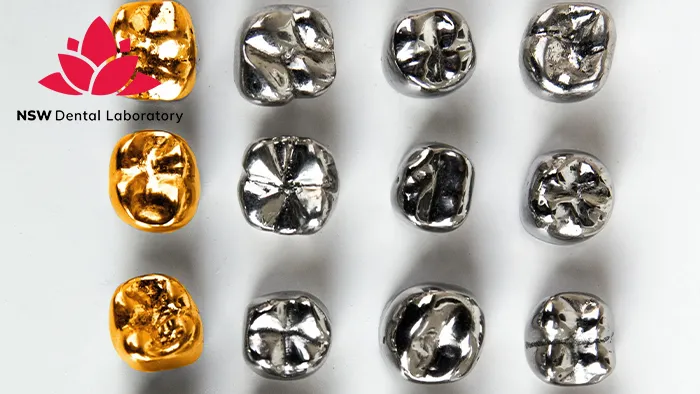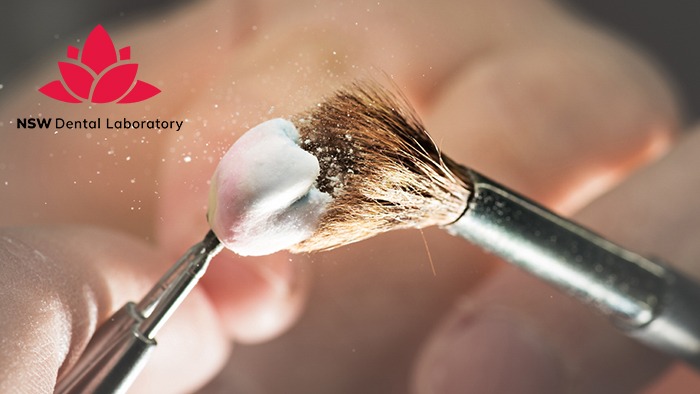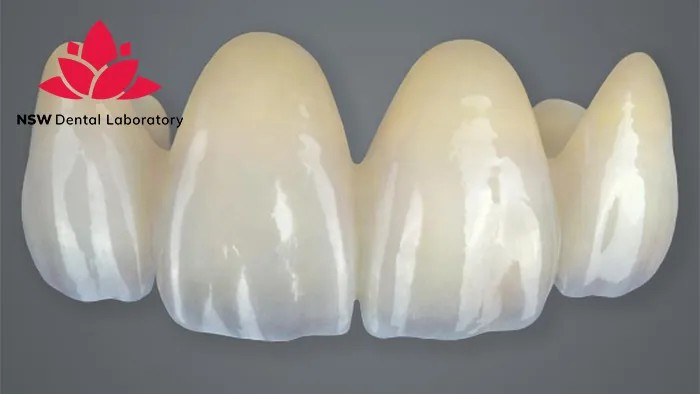Is A Dental Crown An Essential Solution For You?
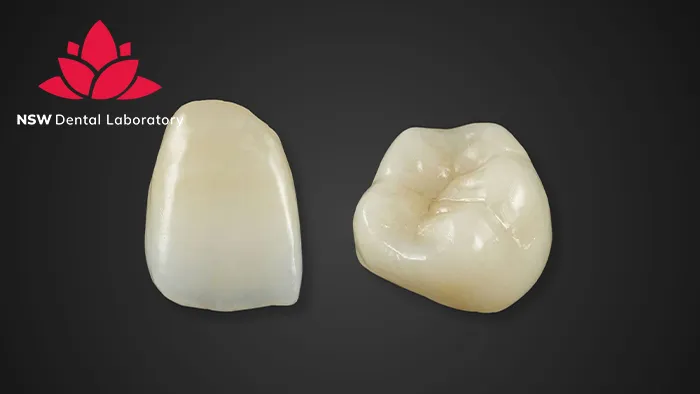
A Dental Crown is one of the most widely used solutions for restoring damaged teeth in modern dentistry. However, not everyone fully understands a Dental Crown, their benefits, the procedure, and the variety of available types. Gaining a comprehensive understanding of the Dental Crown and its importance is the key to making informed decisions about oral health treatments and achieving a confident, healthy smile.
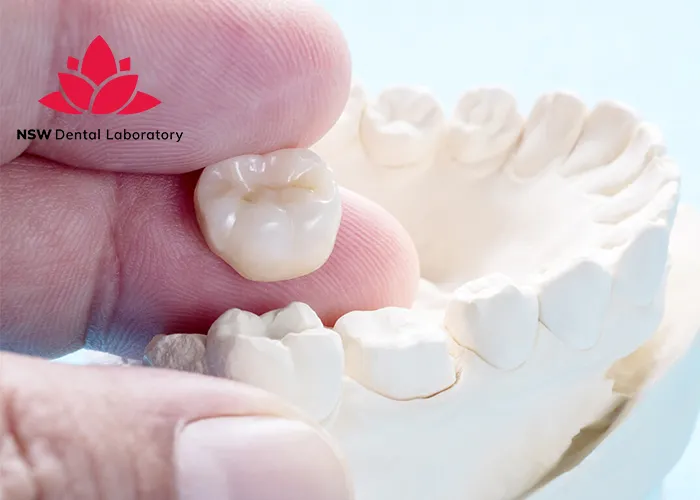
What Is a Dental Crown?
A Dental Crown is a tooth-shaped cap that fully covers or encases a natural tooth to restore its shape, size, strength, and appearance. It is used to protect teeth affected by decay, discoloration, weakness, fractures, or cracks. A Dental crown can be made from various materials, including zirconia, metal, metal alloys, porcelain, or a combination of porcelain and metal. They are typically fabricated using indirect methods to ensure a precise fit and durability.
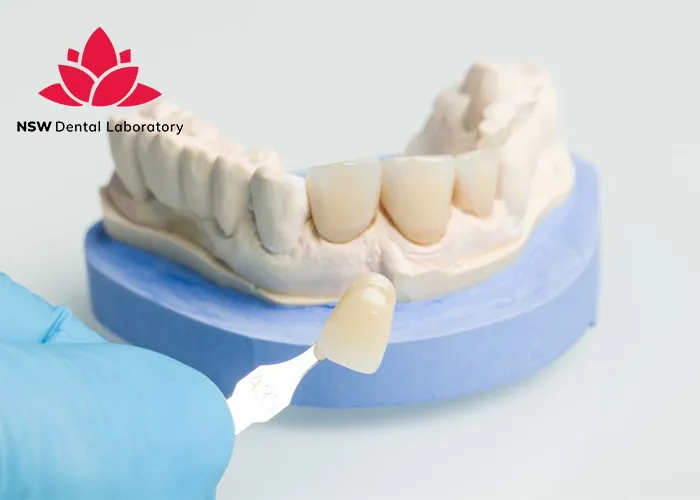
Why Is A Dental Crown Needed?
There are many conservative options for restoring natural tooth structure, such as dental bonding, ceramic inlays, and onlays, which can serve as alternatives to dental crowns. However, in certain cases, a dental crown is the most suitable option. The specific cases include:
- Fractured or cracked teeth: When a tooth is severely broken or has lost a significant amount of its natural structure, a dental crown can provide essential structural support for the weakened tooth, something that fillings alone cannot adequately address.
- Severe tooth decay: When a tooth has extensive decay and has lost a significant amount of its natural structure, it may be at risk of fracturing in the future if not properly restored. Dental fillings or ceramic inlays may not provide sufficient durability for long-term results. In such cases, a dentist may recommend placing a Dental Crown to reinforce and protect the weakened tooth.
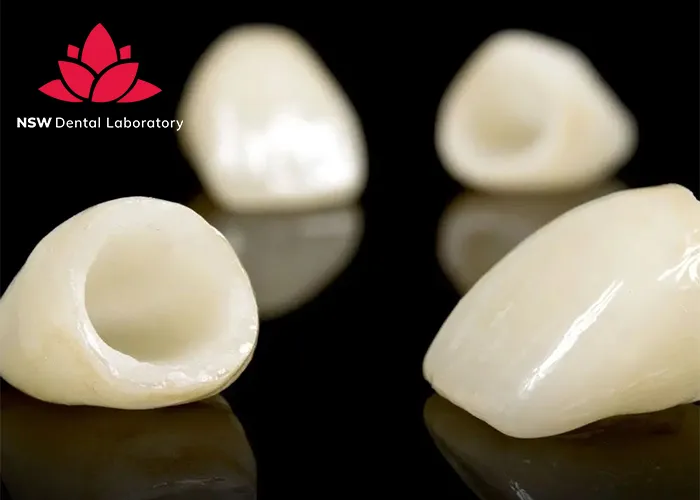
- Aesthetic enhancement: For teeth with severe discoloration, deformities, or significant staining, Dental Crowns, along with porcelain veneers, may be considered to restore the tooth’s aesthetics.
- Support for dental bridges and implants: Dental crowns serve as anchor points for dental bridges, helping to replace missing teeth and restore a complete smile. Additionally, they cover and protect dental implants, providing a natural-looking restoration that functions like a real tooth.
- Root canal treatment: After a root canal procedure, the tooth becomes brittle and may fracture under biting pressure. Therefore, a Dental Crown is often recommended to protect the treated tooth and prevent further damage to its structure.
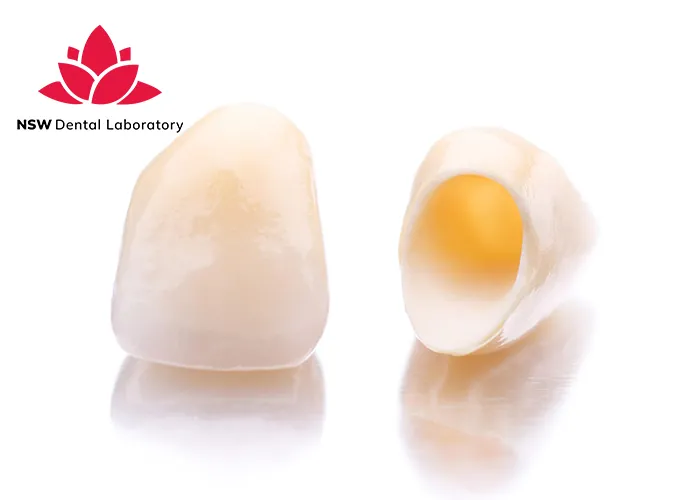
Common Types of A Dental Crown
Zirconia Crown
A zirconia crown is one of the most widely used dental restorations today, made from zirconium dioxide, a durable and aesthetically pleasing ceramic material. It is completely metal-free, offering high biocompatibility and eliminating the risk of allergic reactions. With exceptional strength and durability, zirconia crowns are ideal for molar teeth, where maximum strength is required. Additionally, they can be precisely milled and fabricated quickly using digital technology.
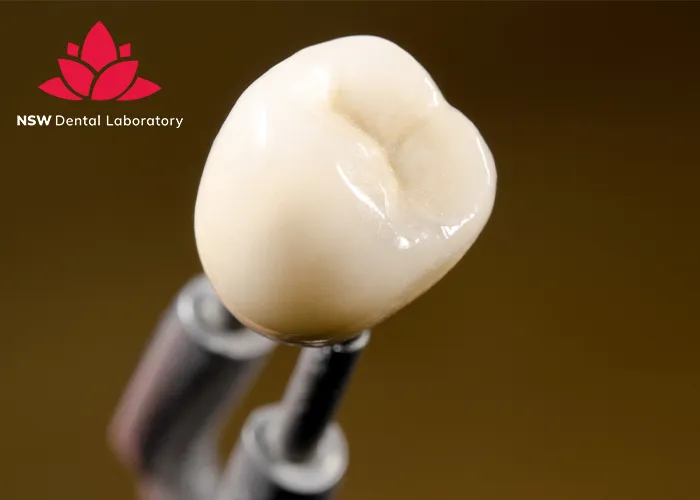
Zirconia Crown
Metal Crown
Metal crowns (gold, palladium, nickel-chromium, etc.) have been used for decades due to their exceptional durability and the notable biocompatibility of gold. Although they are not aesthetically pleasing, they offer superior strength and resistance to chipping or fracture, and cause minimal wear on opposing teeth. As a result, they are commonly used for posterior teeth, where strength and longevity are prioritized.
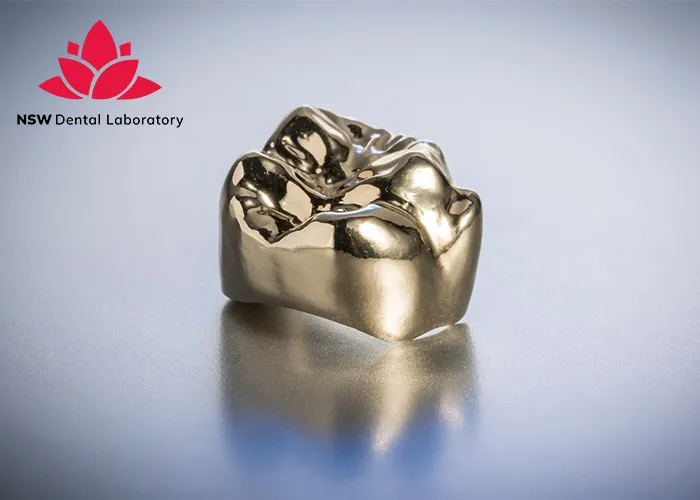
Metal Crown
Porcelain Fused To Metal (PFM)
A PFM (Porcelain-Fused-to-Metal) crown is a type of dental restoration that combines the strength of a metal base with an aesthetically pleasing porcelain overlay. For a long time, it was the most commonly used crown in dentistry due to its excellent durability and natural tooth-like appearance. However, PFM crowns have some drawbacks, including the risk of porcelain chipping and the potential for the metal margin to become exposed if gum recession occurs. Additionally, since they contain metal, they may not be suitable for patients with metal allergies.
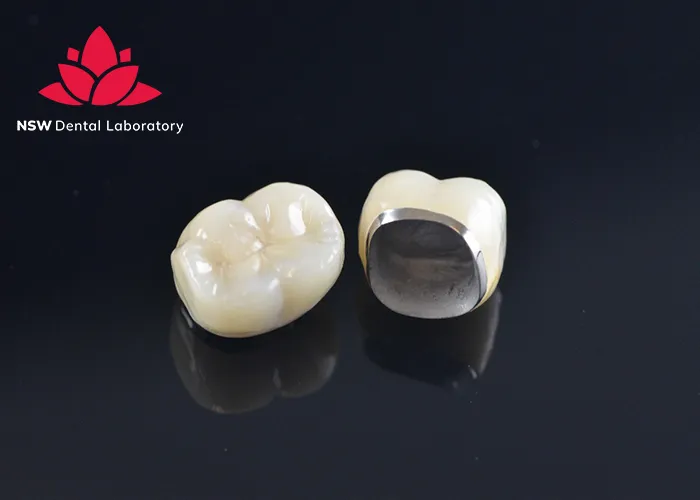
PFM
All-Ceramic And Porcelain Crown
All ceramic and porcelain crowns mimic the translucency and light-reflecting properties of natural teeth, making them nearly indistinguishable from real teeth. As a result, they are often used for restorations in highly visible front teeth where aesthetics are a priority. Despite their superior aesthetic appeal, all ceramic and porcelain crowns are less durable and more expensive compared to metal crowns and zirconia crowns.
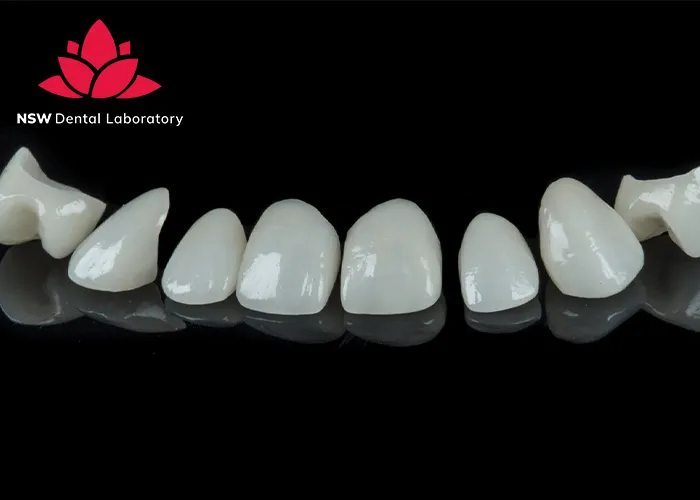
Porcelain Crown
Resin Crown
Resin crowns are made from composite resin material and are designed to resemble the natural color of teeth while being cost-effective. They are commonly used for temporary restorations while waiting for a permanent crown to be fabricated. However, resin crowns are more prone to wear and discoloration and may require more frequent replacement.
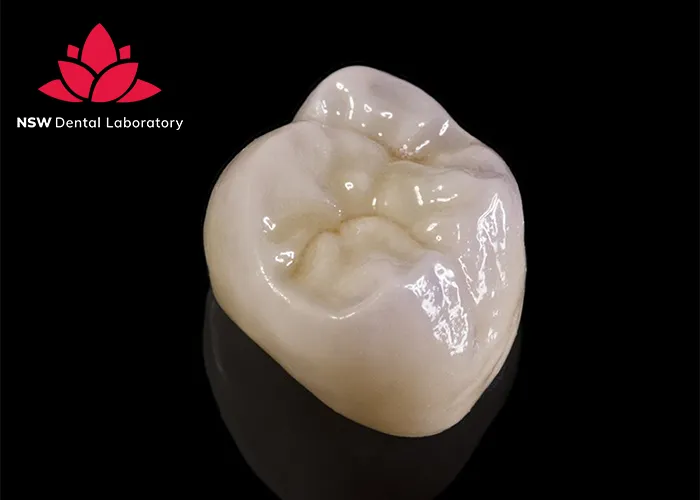
Resin Crown
Procedure For Dental Crowns
First Appointment
The first step is for the dentist to examine and assess the extent of tooth damage, either visually or using X-rays. Once the specific condition has been determined, the dentist will perform any necessary preliminary treatments before proceeding with the next steps.
Next, the tooth preparation process begins by removing a portion of the natural enamel to create space for the crown. After the tooth has been properly prepared, the dentist will take an impression, which can be done using either a traditional method or digital scanning. This impression is then sent to a dental laboratory, where technicians fabricate the crown.
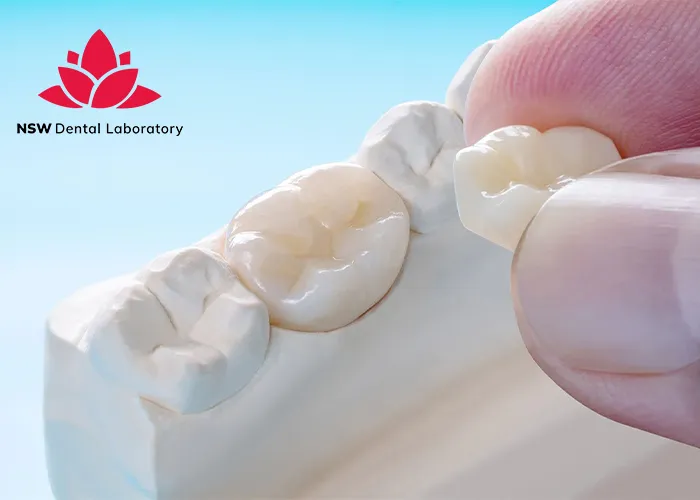
This process typically takes 2–3 weeks, so a temporary crown made of resin or acrylic is placed to restore the tooth’s function while waiting for the permanent crown.
Second Appointment
Once the permanent crown is completed, it will be sent back to the dental clinic. During the second appointment, the dentist will remove the temporary crown and check the fit and color of the permanent crown. Any necessary adjustments will be made before securely cementing the crown onto the natural tooth.
Finally, the dentist will provide care instructions and schedule a follow-up appointment for the patient.
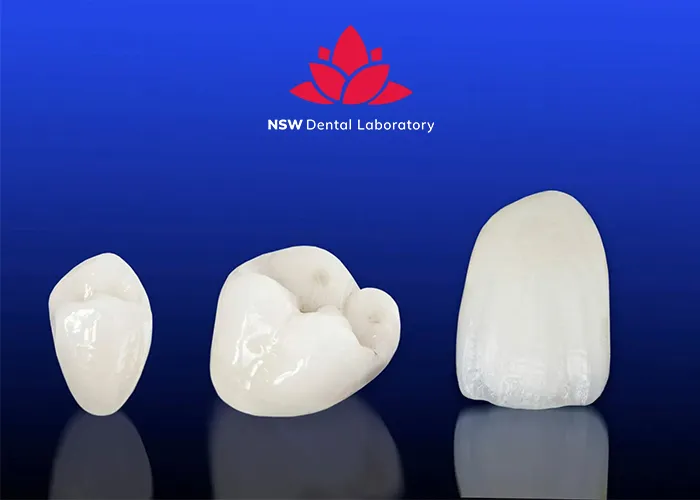
Dental Crown At NSW Dental Lab
A Dental crown can last for many years, providing essential protection and functionality. Factors such as the materials used, oral hygiene, and regular dental check-ups all play a crucial role in their longevity. Additionally, choosing a high-quality dental laboratory ensures superior restorations, helping dentists elevate their practice while delivering the best possible outcomes for patients.
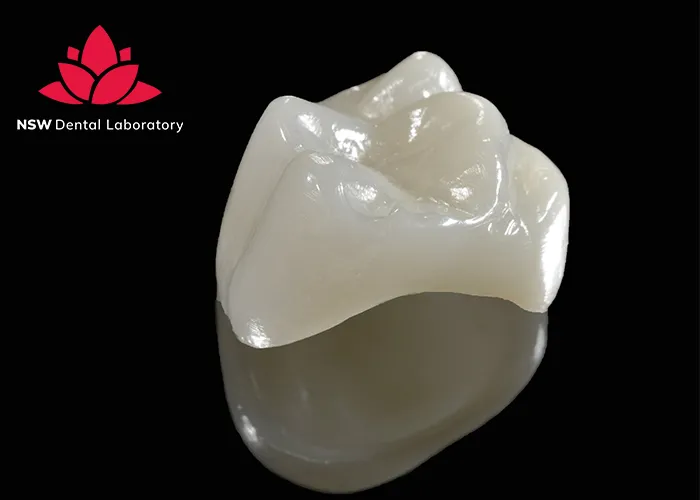
NSW Dental Lab takes pride in being one of Australia’s leading modern and advanced dental laboratories, specializing in high-quality dental restorations. We offer a wide range of products, from monolithic zirconia, high-translucent zirconia, and full e.max to traditional options like PFM, metal, and gold restorations. Our commitment is to provide dental crowns that meet the highest quality standards at the most competitive prices in the market.
For more information about our products and exclusive offers, please contact us today. The NSW Dental Lab team is always ready to assist you!

